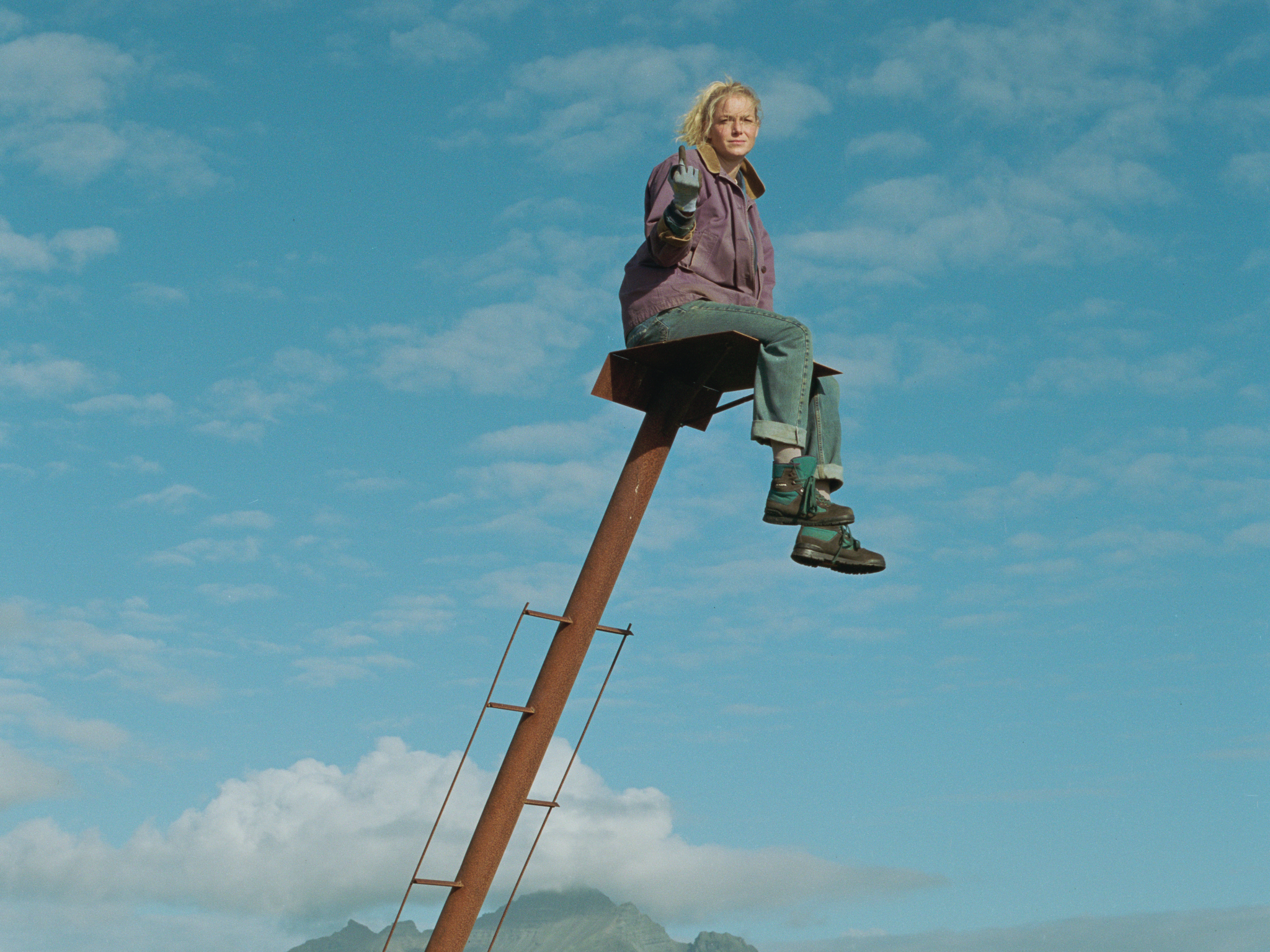The Love That Remains
Astin sem eftir er
VERDICT: A family falls apart into each other's arms in Hlynur Palmason's distinctive 'The Love That Remains'.
Across his last two features, Icelandic filmmaker Hlynur Palmason has established himself as a storyteller of the unrelentingly bleak. A White, White Day explored the intersection of grief and anger, while Godland tested a priest’s faith as he embarked on an arduous missionary trek. So, you might be forgiven if you would expect more of the same in The Love That Remains, which chronicles a family split by divorce. But the result is an endearing left turn by Palmason, one that sees him a crack a smile and take frequent dips into the surreal with results both imperfect and inspired.
Anna (Saga Gardarsdottir) is a newly single visual artist who balances creating giant canvases of her work in the open fields of rural Iceland, as she does looking after her three children, the teenage Ida, and junior high age twins Grimur and Porgils (all three played by the director’s own kids Ida Mekkín Hlynsdottir, and Grímur and Porgils Hlynsson). Her ex-husband and the children’s father, Magnus (Sverrir Gudnason), spends long stretches of time working on fishing boats. But when he’s back on land, he’s a regular fixture at Anna’s, doing his best to be a presence to his sons and daughter. Anna and Magnus (mostly) still get along — arguments flare and fizzle — but for the most part, the home is chaotically joyful.
Set over the course of a year, the film doesn’t so much build a story as shift with the changing seasons. The most narrative time is spent with Anna trying to sell her work to a Swedish gallerist, but even that occupies maybe a quarter of an hour. The decision to buy Ida a horse unfolds in one swift scene, and is almost never referred to again. In fact, we don’t even see the equine; Ida and her brothers spend more time practicing their shot with a bow and arrow.
What does emerge is an interrogation of male entitlement. “I know her and I don’t know her,” Magnus says to a fellow fisherman about his relationship with Anna, but it’s less that she’s elusive than he’s oblivious to the reasons that she sometimes downright hates him. Whether it’s halfway pleading for casual sex or trying to implement his ideas about raising the kids under her roof, Magnus can’t see his family past his own nose. It takes his former father-in-law, played by Ingvar Sigurdsson, to tell him the seemingly simple, obvious lesson: if Magnus wants to be a good father and partner he needs to put himself last. But Magnus would rather play the martyr.
Lensed in 35mm in Palmason’s trademark, Academy ratio, the film — like his previous efforts — looks sublime. But the picture’s magic this time around comes from the score by Harry Hunt which features a handful of filagreed, jazzy, woodwind led interludes. They aid the film in floating along with its characters, from one incident to another — a trip to the emergency room; making jam in the kitchen; having a barbecue — pass like turning pages in a photo album. The music keeps the tone of the film in place, even when it pushes into the fantastical — an imagined plane crash; the appearance of giant rooster — to largely mixed if not outright confusing results.
The film’s best sequence is a conversation between Ida and her brothers. Ida shares that she feels she’s at a crossroads in her life, as she makes decisions about her future, and the discussion rolls into talk about dating and sex. In any other film, one of the parents would be involved, but here Palmason relays that even in the harmonic disharmony of this particular family, the kids are kind, open, and looking out for each other. Perhaps in a way that their mother and father couldn’t do for each other. That, perhaps more than any other metric, should be considered a success.
Director: Hlynur Palmason
Screenplay: Hlynur Palmason
Cast: Saga Garoarsdottir, Sverrir Guonason, Ida Mekkín Hlynsdottir, Grímur Hlynsson, Porgils Hlynsson, Ingvar Sigurosson, Anders Mossling
Producers: Anton Mani Svansson, Katrin Pors
Cinematography: Hlynur Palmason
Production design: Frosti Frioriksson
Costume design: Nina Gronlund
Editing: Julius Krebs Damsbo
Music: Harry Hunt
Sound: Bjorn Viktorsson
Production companies: STILL VIVID (Iceland), Snowglobe (Denmark), HOBAB (Sweden), Maneki Films (France), Film i Vast (Sweden), ARTE France Cinema (France)
World sales: New Europe Film Sales
Venue: Toronto International Film Festival (Centrepiece)
In Icelandic, English, Swedish, French
109 minutes


